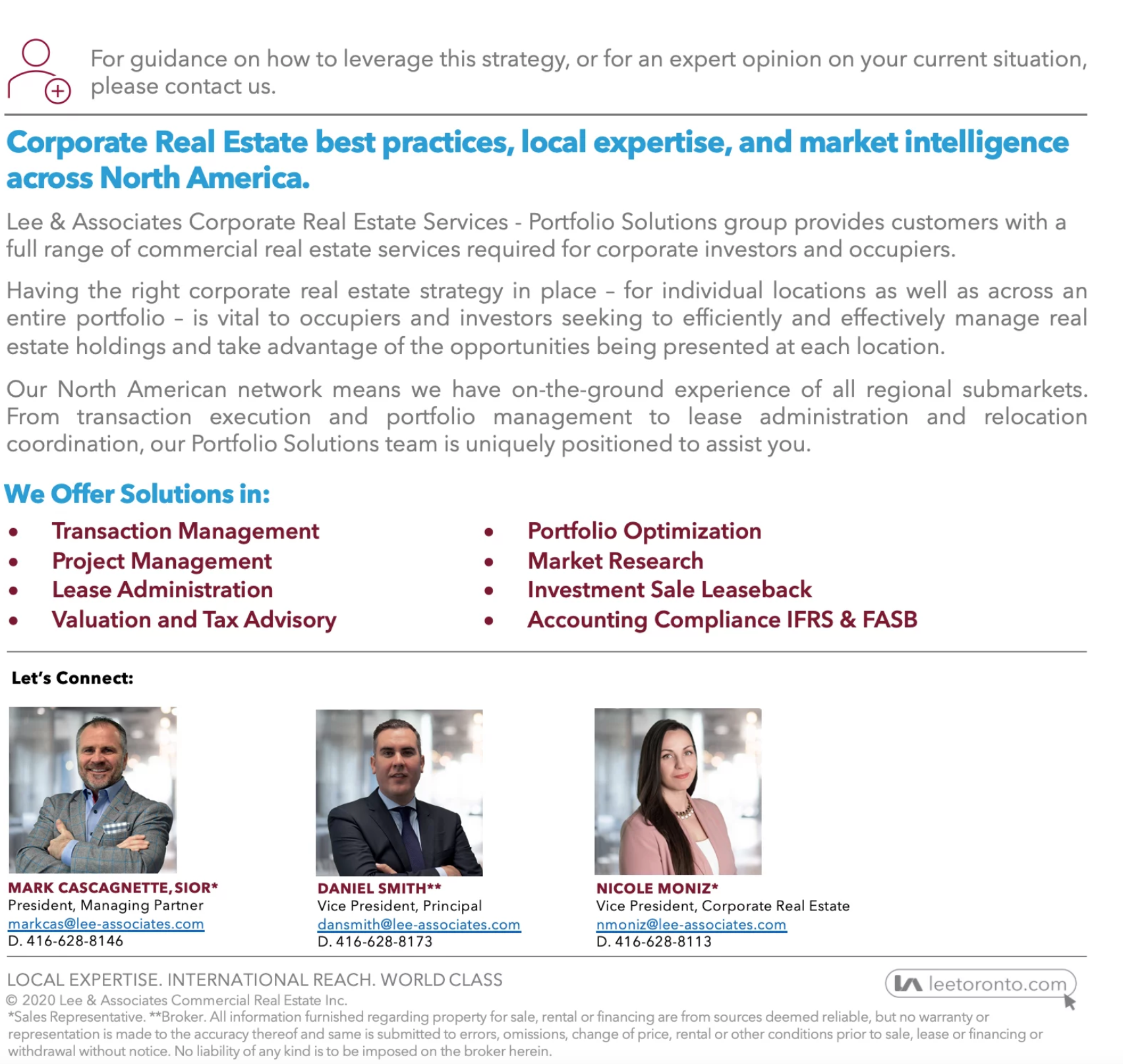
Five Common Lease Renewal Pitfalls
If your term is about to expire and you think renewing is as simple as calling your landlord and extending your current terms and rate, then you may want to read on because we’ve got some news for you. The truth is, negotiating a lease may put you in a costly trap, whether you try to do it yourself or hire a professional.
A renewal may represent an opportunity to:
- Save Money
- Modify Key Lease Terms
- Make Facility Upgrades
- Improve Business Performance
However, when negotiating without knowledgeable and professional representation, this opportunity is often lost.
This is because many parts of the process are not widely known to tenants (or even brokers), but rather, they come from the experience of dealing with landlords on a weekly, or even daily, basis. And if you fail to get it right, you may be stuck with your situation for 5 or 10 years, or maybe longer. This is something we’ve seen when approached by businesses looking for help because they can’t afford to make the same mistake twice.
From inadequate requirements, compromising to meet deadlines, stressing over uncertainty, or getting locked into overpaying… the space you occupy should be the least of your operational worries.
We’ve seen Five Common Costly Mistakes that tenants and users make when renewing their leases, and while you may not be able to execute on these items in real-time in a boardroom (and we wouldn’t recommend going without a broker who is a leasing specialist) you should at least be aware of them.
Taken individually, they may only have minor impacts on the transaction. However, a combination of many (or all) of them can spell disaster to the end result.
Today, let’s examine one of the five common issues we see Tenants face during the lease renewal process.
Major Pitfall #2: Starting Too Late
In a typical week, most businesses are busy dealing with clients, employees, vendors, fulfillment, or sales, and renewing your lease gets pushed way down the priority list.
However, in our experience, waiting until the last minute to begin the process can put you at a significant disadvantage when it comes time to sit down with your landlord because it is simply difficult to execute on a compressed schedule.
This is especially true if you are looking to discuss long-lead-time solutions like build-to-suits or existing building retrofits.
Further, given the chronic shortage of space and rising rental rates in the Greater Toronto Area, it is likely that Landlords have much of the negotiating power in a traditional renewal scenario, or unless you proactively work the process.
By conducting an analysis of your current lease and identifying all feasible options, you can approach other landlords and keep alternatives in your back pocket should yours be unreasonable or unwilling to negotiate.
Ironically, it is this willingness and ability to leave and relocate that turns the tables and puts you in a position of power, ensuring that you, at the very least, receive a market competitive rate.
Bottom line: competition creates negotiation leverage.
Summary
Overall, Tenants and Landlords of commercial space are constantly looking for opportunities to minimize costs and risks associated with their real estate footprints and portfolios.
A lease renewal is a part of any Tenant’s experience as an occupier of commercial space. Aside from purchasing space or relocating, there is little chance of avoiding it. The good news is, the process can be done proactively and leveraged strategically to gain an edge at the negotiating table. Competitive rents, favourable terms, and even concessions – such as Tenant Improvements – are all items which can be pursued and which may be obtained.



